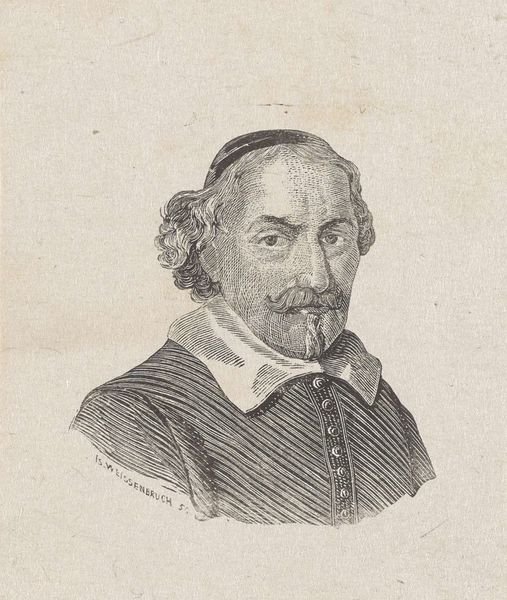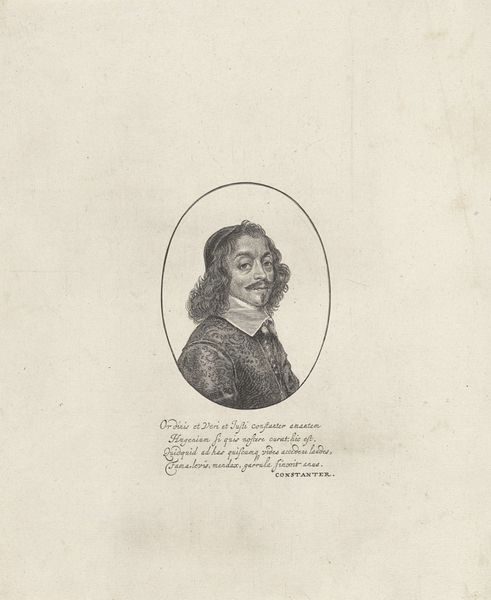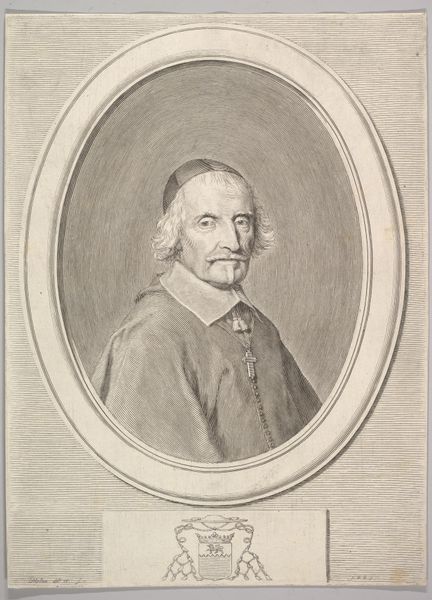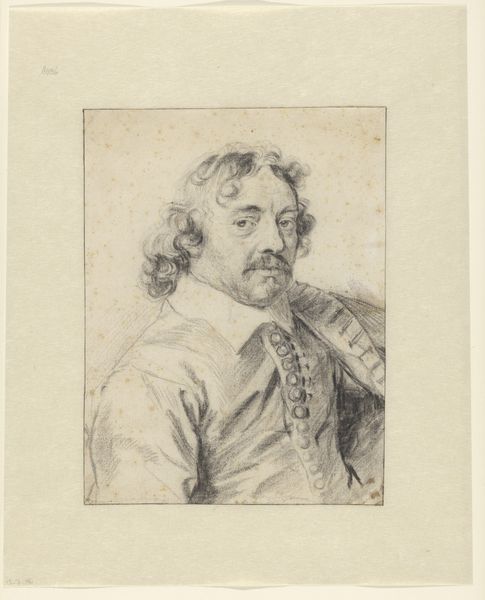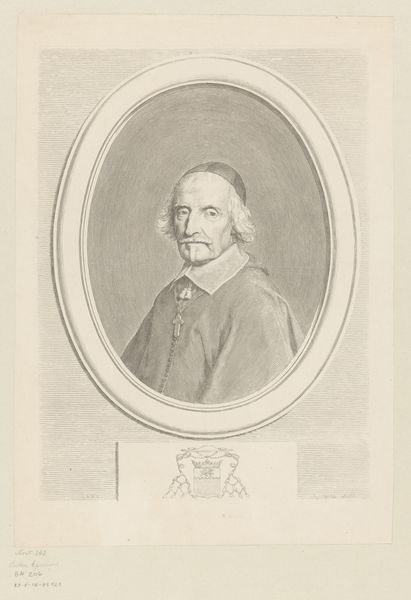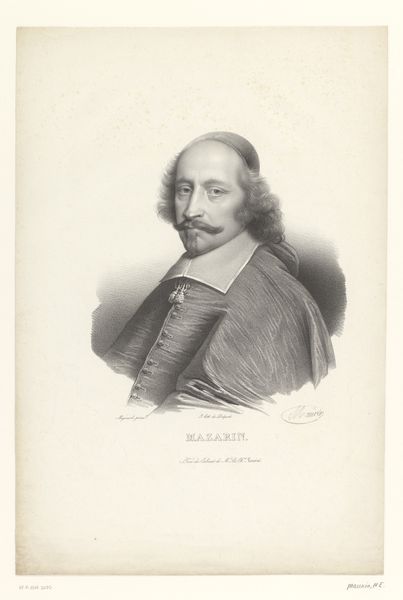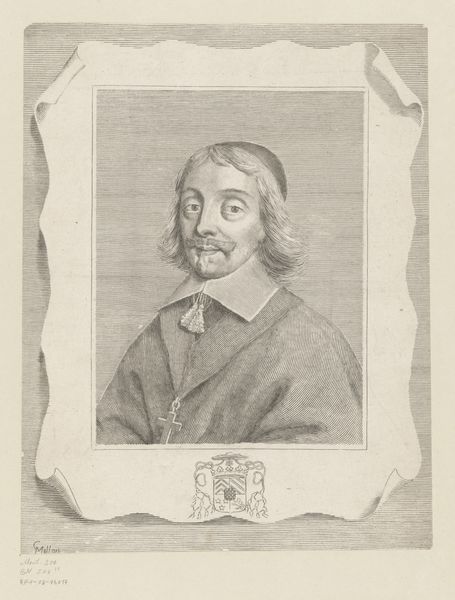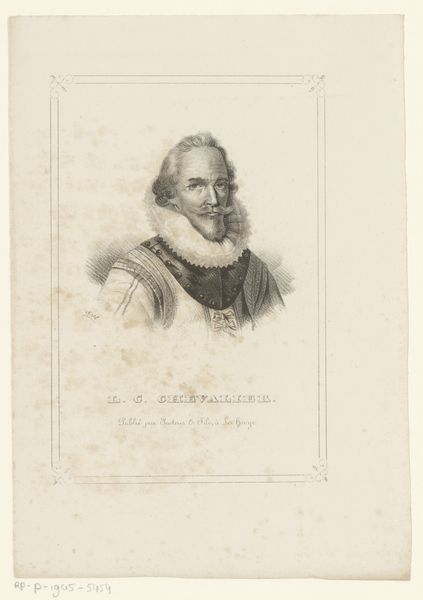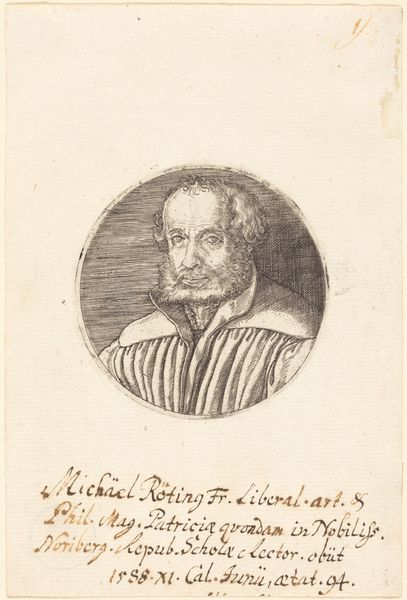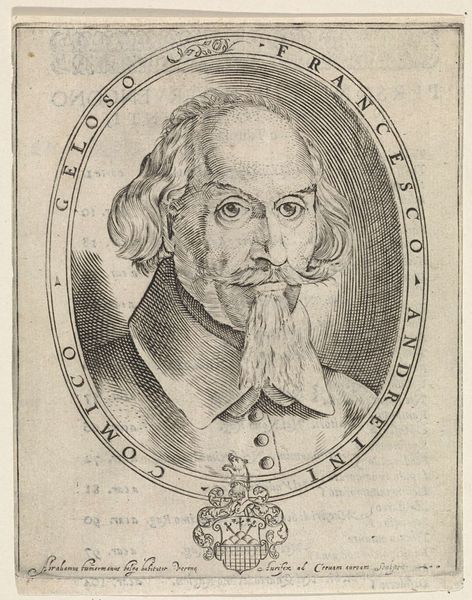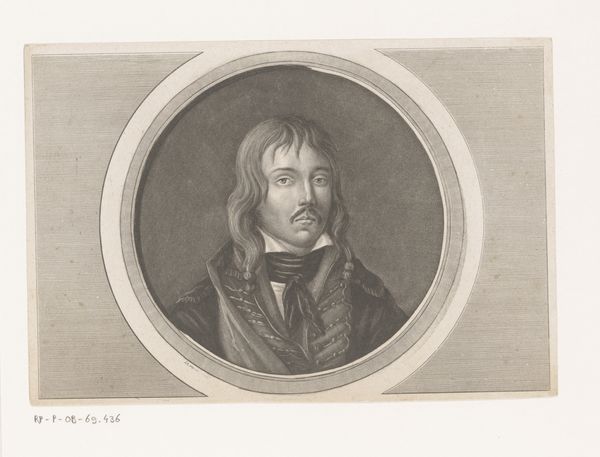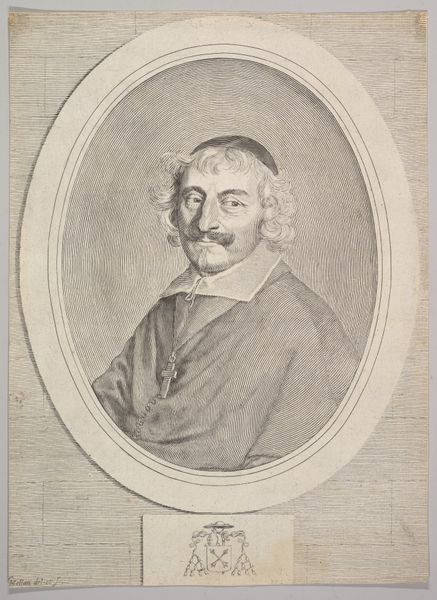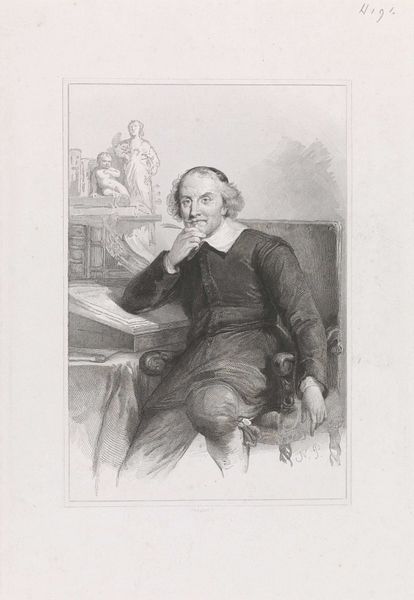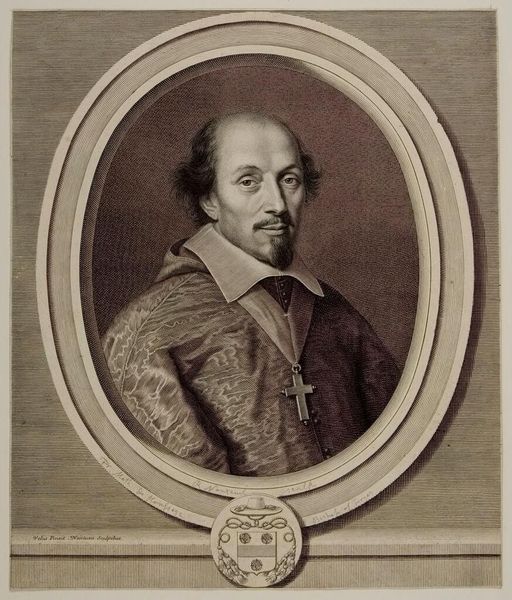
#
pencil drawn
#
amateur sketch
#
light pencil work
#
quirky sketch
#
pencil sketch
#
personal sketchbook
#
idea generation sketch
#
sketchbook drawing
#
pencil work
#
sketchbook art
Dimensions: height 107 mm, width 93 mm
Copyright: Rijks Museum: Open Domain
Editor: This is Isaac Weissenbruch's "Portret van Joost van den Vondel," dating from 1836 to 1912, housed here at the Rijksmuseum. It's a pencil drawing, almost like a quick sketch. What can you tell us about this work, beyond the basics? Curator: Well, it's interesting to consider the political context of such a portrait. Vondel, a celebrated Dutch poet and playwright, became a powerful symbol of Dutch identity and cultural achievement. This later portrayal by Weissenbruch – seemingly so simple – speaks to the ongoing effort to define and solidify national identity. Editor: So you're saying this sketch isn't just a likeness, it’s actively shaping Vondel’s image in the late 19th century? Curator: Exactly. Think about the rise of museums in this period. Institutions like the Rijksmuseum played a vital role in curating and promoting a specific narrative of national history. How do choices about which historical figures to memorialize through portraiture, even in a 'simple sketch', influence our understanding of the past? Editor: That's a fascinating point. I hadn’t considered the active role a sketch like this plays in shaping public perception. Are there other ways the context of display influences our interpretation? Curator: Absolutely. Consider where this portrait hangs in relation to other works, what text accompanies it, even the lighting… all these factors shape our reading. How the museum frames Vondel tells us what aspects of his life and work are valued, and what values are being promoted to the public. Editor: So even a seemingly straightforward portrait becomes a statement about national identity when seen through a historical and institutional lens. That really changes how I see this work. Curator: Indeed. By recognizing the role of these socio-political factors, we gain a deeper understanding of how art actively participates in constructing history and collective memory.
Comments
No comments
Be the first to comment and join the conversation on the ultimate creative platform.
